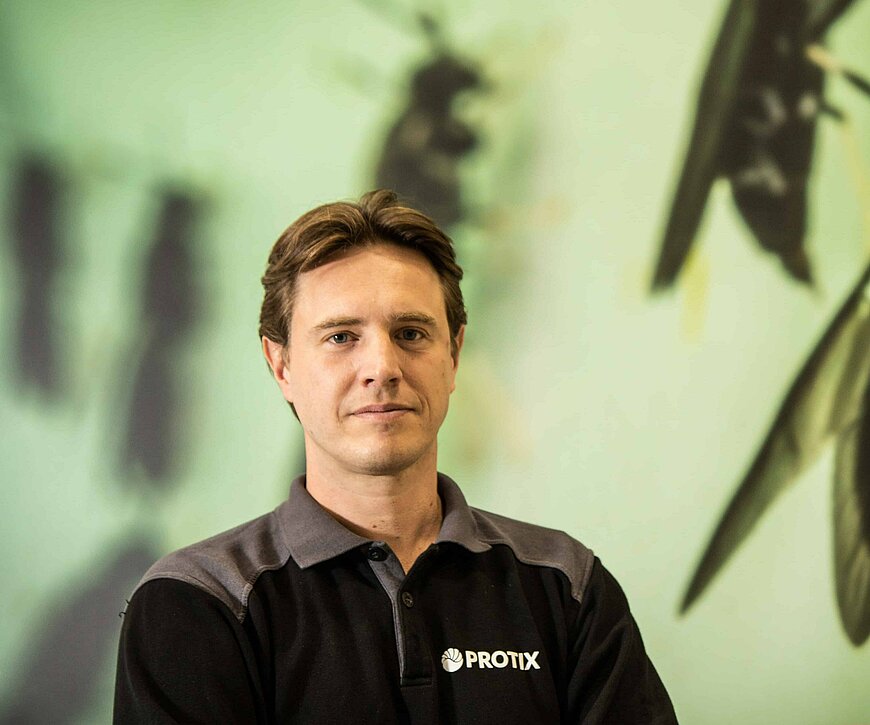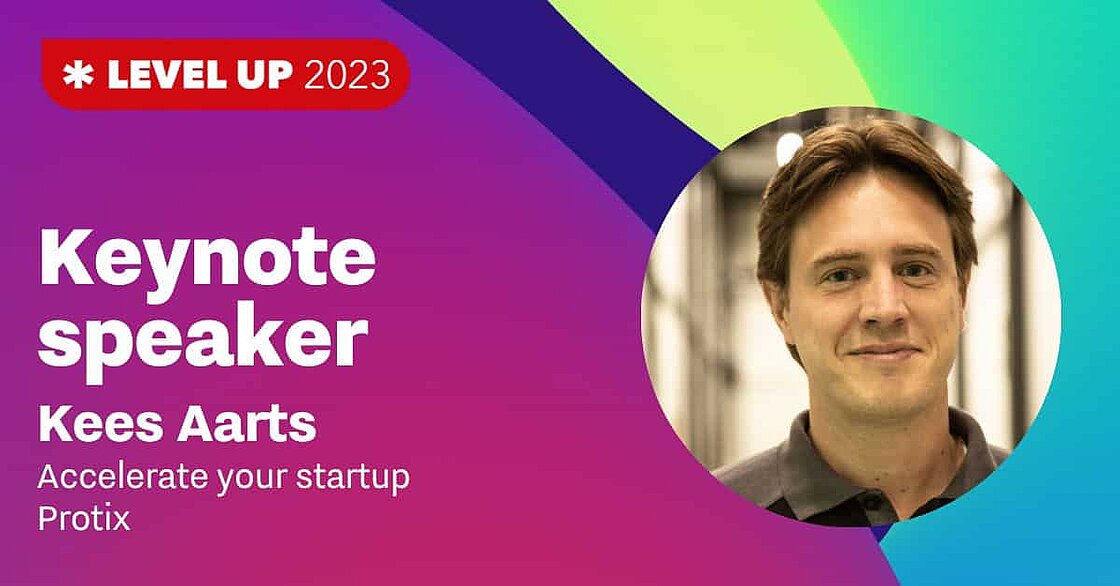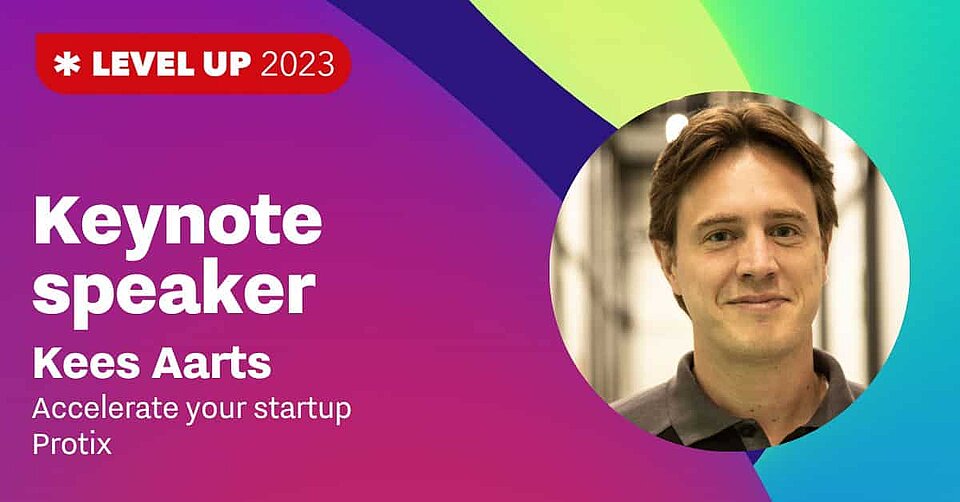We can’t download a safe, green future from the app store

"Young entrepreneurs should be well aware that it's not always fun. If you expect that, you're better off on a desert island. If you do go into business; Eat shit and keep going."
“What real impact means? I can pick you up now and drive to a place in Bergen op Zoom where a factory breeds millions of insects. And say: before we got into this fourteen years ago, this wasn’t there,” begins Kees Aarts. He is co-founder and CEO of Protix; the largest insect farm in the world.
Aarts is one of three keynote speakers at the Level Up event in Eindhoven on Sept. 25. The title of his keynote – “How I built my best team ever with Protix” – speaks for itself. “There are many topics I could talk about, but almost all issues and problems entrepreneurs face start with the question: how do I build a good team? To make an impact, you will have to build good teams. With that, everything stands or falls.”
‘Eat shit and keep going’
When asked what it is exactly that makes the team good, Aarts’ answer is simple: colleagues who interact both formally and informally, understand each other, dare to take risks, and have fun together, even in hard times. “If my team asks me to sign something and it has to be done quickly, I put my signature without hesitation. I do that because they would only pressure me if necessary.”
Also important: the realization that – no matter how cozy it is among ourselves – it can’t always be fun. “If you expect that, you’re better off on a desert island. If you do go into business; Eat shit and keep going. That is something I would like to pass on to young entrepreneurs. When you have a good idea and the right capabilities, think big about an international company with thousands of employees and push through all the setbacks. Now, that’s cool.”
Black soldier flies
In 2009, together with co-founder Tarique Arsiwalla, Aarts founded Protix. The goal is to market a sustainable and competitive alternative to fish and cattle feed with insects processed into sustainable protein meals and fat. The advantages of insects over other options are numerous: little space is needed for cultivation, insects thrive on waste streams, and CO₂ emissions are many times lower than those of alternatives such as chicken (27 times lower) or soy (7 times lower).
Flexibility
How Aarts looks back on the past fourteen years as an entrepreneur? “It’s not much more than just doing it, motivating your people, and having fun. In some cases, you must step up the pressure; in others, you must take it easy. Sometimes you have to stand your ground and get angry; sometimes you don’t. Sometimes you have to fire someone; other times you don’t.”


The CEO is straightforward and thinks carefully about how he formulates his answers. Entrepreneurship often goes well for him; he attributes it partly to his down-to-earth upbringing. ” My parents taught me to bring things in perspective. That has brought me a lot.”
If it were up to him, we should put more weight on the definition of ‘entrepreneur’. He doesn’t get hot or cold from someone selling towels or soaps in a webshop. “In my eyes, an entrepreneur is someone who can build a community. Someone who adds value to society with their business. We are not going to download a green, and saver future from the app store.”
Moreover, Aarts increasingly hears investors speak highly of how they contribute to sustainable or social innovations. “Only companies, initiatives, and projects can add value. Sitting on the side of money is safer and brings more financial benefits. But investors are banking on efforts by entrepreneurs who do run risks and have to work very hard. More people should switch from the money side to the side where the money is spent. Both worlds need each other, but the world of execution cannot be big enough. Entrepreneurship is about taking risks, not allocating capital.”
Red flag: doing business from an anti-attitude
Shortly after the interview ends, Aarts calls back. He forgot something important that he would like to pass on to Level Up visitors in September. “I see that for more and more people the trigger to start a company is an aversion or strong anti-attitude. So: Shell is bad so I will do something with solar energy. But the chances of success are nearly zero because the trigger is not right. There aren’t many bad people or bad companies. Sure, plenty of things need to change, but that’s because the system doesn’t lend itself to rapid change. If, as an entrepreneur, you want to start a business purely because everyone else doesn’t understand it all, that’s an alarm bell that you’re probably not going to make it.”

